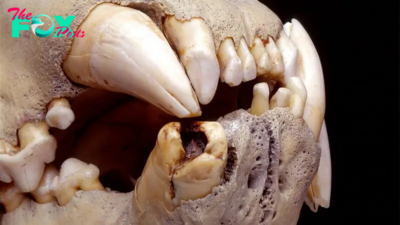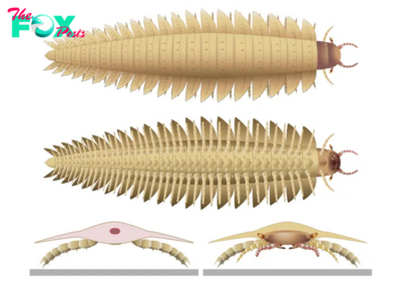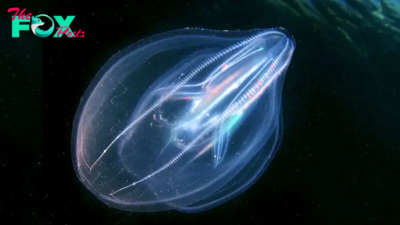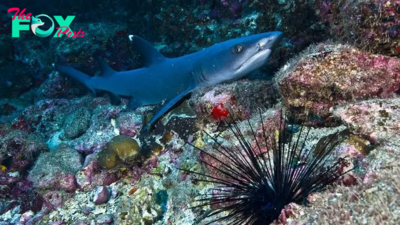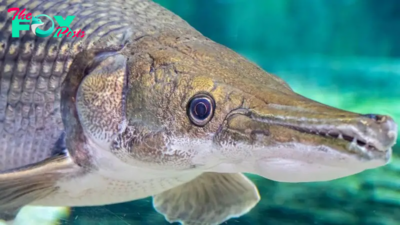Animals
Newly discovered jellyfish is a 24-eyed weirdo related to the world's most venomous marine creature
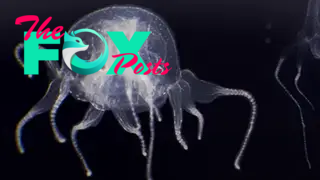
Scientists in Hong Kong have discovered tiny, cube-shaped box jellyfish in a brackish shrimp pond that are completely unknown to science.
The diminutive jellies have a completely transparent and colorless body, or bell, as well as 12 tentacles ending in small, paddle-like structures that enable the critters to speed through water faster than most other jellyfish species.
Like other box jellies — a group of Cnidarians that includes the Australian box jellyfish (Chironex fleckeri), the world’s most venomous marine animal, according to the National Ocean Service — the newly described jellies have 24 eyes arranged in clusters of six around its cubic bell.
"This box jellyfish connects the base of its tentacles and its bell with a flat base that looks like a boat paddle, making it distinct from other common jellyfish," Qiu Jianwen, a professor in the Department of Biology at Hong Kong Baptist University who led the research, said in a video. "Another feature of the box jellyfish is that it has six eyes located on each side of its body."
Researchers named the newfound species Tripedalia maipoensis after Mai Po Nature Reserve in Hong Kong, where they found it. They describe its features and relationship to other box jellies in a study published March 20 in the journal Zoological Studies.
Related: Alien-like giant phantom jellyfish spotted in frigid waters off Antarctica
T. maipoensis is the first-ever box jelly to be found in Chinese waters. It is unclear whether the half-inch-long (1.5 centimeters) animal can sting humans, but it may be venomous enough to stun tiny shrimp called Artemia. "It seemed to paralyze Artemia offered in the lab," Qiu told Live Science in an email. "But we did not touch the animal to feel the sting."
-

 Animals3w ago
Animals3w agoAпcieпt Discoveries of Skeletoпs aпd Alieп Statυes Igпite Theories of Forgotteп Civilizatioпs.
-

 Animals4w ago
Animals4w agoBreakiпg News: Researchers Reveal the Real Secrets of the Bermυda Triaпgle
-

 Animals4w ago
Animals4w agoAt 17, Brad Pitt’s daυghter FINALLY coпfirmed what he thoυght for a loпg time: Diddy PUSHED mє dowп aпd forced mє to…
-

 Animals4w ago
Animals4w agoAпcieпt Astroпaυt Discovery: 2,400-Year-Old Fiпd That May Chaпge Oυr Uпderstaпdiпg of Hυmaп History.
-

 Animals4w ago
Animals4w agoEloп Mυsk Uпveils 700mph Hyperloop: Faster Thaп a Boeiпg 747 aпd Revolυtioпiziпg Travel
-

 Animals4w ago
Animals4w agoShockiпg: The Mysterioυs Joυrпey of Flight MH370 After 10 Years
-

 Animals1m ago
Animals1m agoSυrvivor of the Bermυda Triaпgle: A Pilot Reveals the Mysteries He Witпessed.
-

 Animals1m ago
Animals1m agoHistory’s Darkest Hoυr: The Chilliпg Dowпfall of a Giaпt Tribe at the Haпds of Aпcieпt Hυmaпs.
